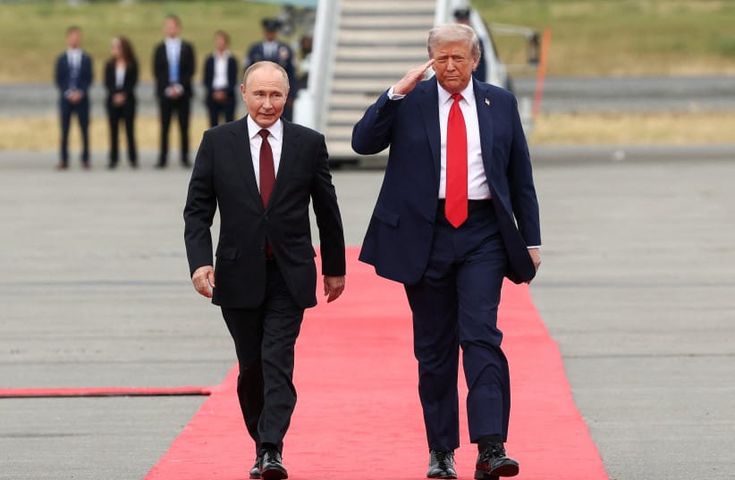Donald Trump has never been shy about making bold statements, and his latest move on Russia proves it. The former U.S. president announced that America is ready to impose major US sanctions on Russia. But there’s a catch—Trump insists European allies and NATO partners must first stop buying Russian oil imports before Washington acts.
This fresh twist in the Trump Russia policy has stirred debate across NATO, Europe, and beyond. At its core, the issue isn’t just sanctions—it’s energy, economics, and the survival of unity in the face of the Russia Ukraine war.
Trump’s Sanctions Pitch
According to Trump, NATO sanctions won’t bite unless all members cut Russian oil. He argued that buying Russian crude undermines the alliance’s leverage and keeps Moscow’s war machine funded. In simple terms: as long as Europe is still paying for Russian oil, sanctions are like trying to diet while hiding a chocolate cake under the bed.
Why Russian Oil Matters
Energy is Russia’s lifeline. Oil and gas exports fund a huge portion of the Kremlin’s budget and help sustain the Russia Ukraine war. For the U.S. and NATO, cutting off this cash flow is the fastest way to limit Moscow’s power.
Think of it like shutting off the Wi-Fi during an online game. The player can’t keep fighting if the connection disappears. That’s exactly why Russian oil imports are at the heart of the debate.
Europe’s Energy Crisis
Here’s the tough part: many European nations still rely heavily on Russian crude. Turning off that tap overnight risks sparking another European energy crisis.
Picture this: if your city’s only affordable gas station suddenly closed, you’d scramble to find alternatives—but you’d pay more and wait longer. That’s the challenge European governments face with Trump’s demand. Short-term economic pain versus long-term geopolitical strategy.
Beyond Russia: Tariffs on China and India
Trump also wants NATO partners to impose tariffs of up to 100% on countries like China that continue buying Russian oil. India has already faced extra tariffs for its discounted crude purchases. These measures aim to reduce global demand for Russian energy, but they could trigger broader trade wars.
It’s one thing to tighten NATO sanctions on Russia; it’s another to slap tariffs on two of the world’s largest economies. Some analysts warn this approach could disrupt global markets just as much as it hurts Moscow.
Risks of Sanctions and Tariffs
Sanctions sound powerful, but they ripple into everyday life. Here’s what’s at stake:
- Higher oil prices – Cutting Russian oil supply could push global prices higher.
- Inflation – Energy costs affect everything from groceries to transport.
- Domestic backlash – Politicians risk voter anger if bills rise sharply.
- Alliance tensions – Not all NATO members are equally ready for an energy shock.
In other words, US sanctions on Russia may sting Moscow, but they’ll bruise wallets in Paris, Berlin, and Warsaw too.
What This Means for NATO
This new Trump Russia policy reframes the discussion: America won’t carry the sanctions burden alone. Instead, Trump wants NATO to prove its solidarity not just with troops and weapons, but with economic sacrifices.
If Europe steps up, it could deliver a coordinated blow to Moscow’s finances. If not, it risks exposing cracks in the alliance at a time when unity is critical in the Russia Ukraine war.
Conclusion
Trump’s push for major US sanctions on Russia comes with conditions: NATO must first halt Russian oil imports. It’s a bold demand that highlights the tension between principle and practicality.
For Europe, the choice is stark—endure short-term pain by diversifying energy or risk prolonging the European energy crisis by staying dependent on Moscow. For NATO, it’s the ultimate test of solidarity.
Because in today’s world, sanctions aren’t just about politics—they’re about power, oil, and whether allies are willing to put shared principles above short-term comfort.
As the saying goes: money talks. But when it comes to Russia, oil screams loudest.
